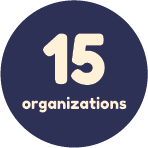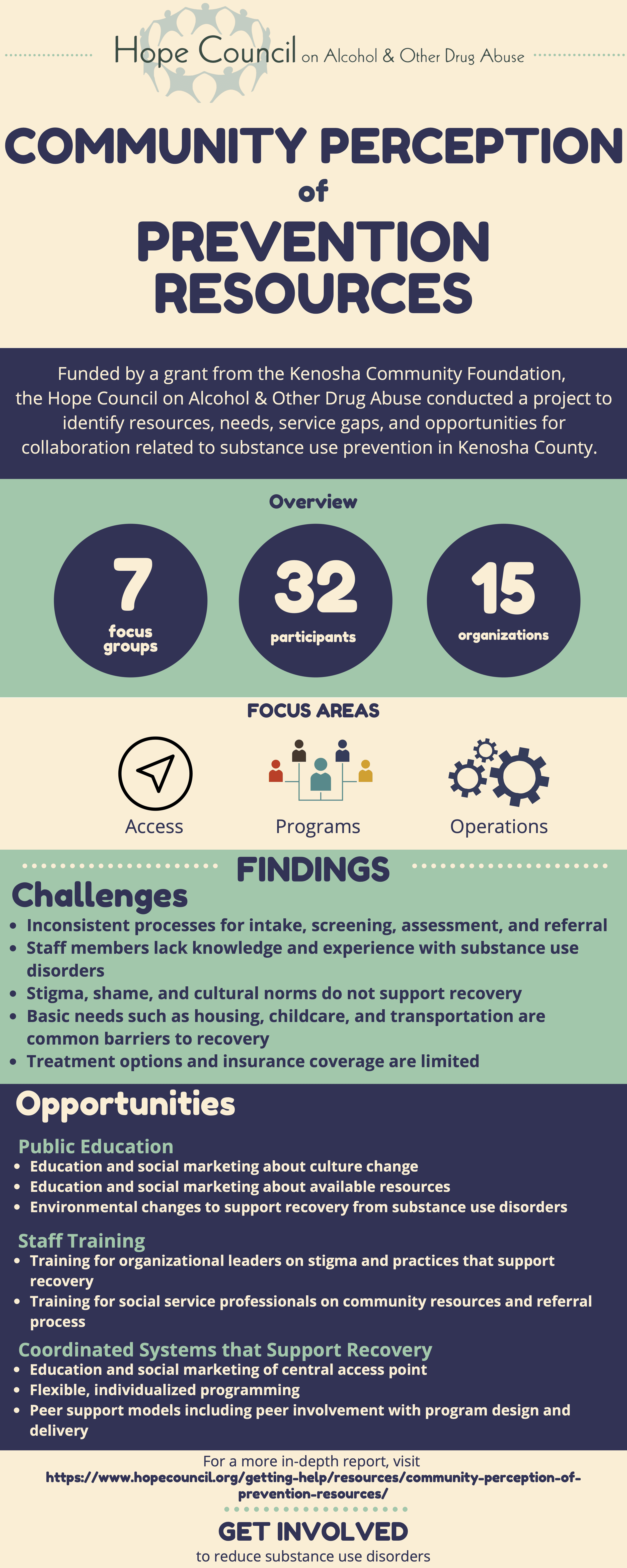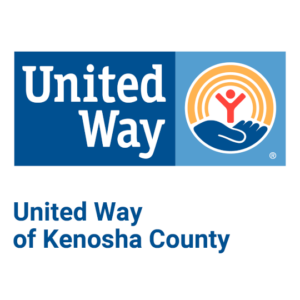Funded by a grant from the Kenosha Community Foundation, the Hope Council on Alcohol & Other Drug Abuse conducted a project to identify resources, needs, service gaps, and opportunities for collaboration related to substance use prevention in Kenosha County.
OVERVIEW



FOCUS AREAS

Access

Programs

Operations
FINDINGS
Challenges
- Inconsistent processes for intake, screening, assessment, and referral
- Staff members lack knowledge and experience with substance use disorders
- Stigma, shame, and cultural norms do not support recovery
- Basic needs such as housing, childcare, and transportation are common barriers to recovery
- Treatment options and insurance coverage are limited
Opportunities
Public Education
- Education and social marketing about culture change
- Education and social marketing about available resources
- Environmental changes to support recovery from substance use disorders
Staff Training
- Training for organizational leaders on stigma and practices that support recovery
- Training for social service professionals on community resources and referral process
Coordinated Systems that Support Recovery
- Education and social marketing of central access point
- Flexible, individualized programming
- Peer support models including peer involvement with program design and delivery
IDEAS FOR ACTION
For Organizations
- Train all supervisors in recognizing and addressing substance use disorders (SUDs) in the workplace.
- Ensure that your workplace understands addiction as the disease it is.
- Ensure that your workplace is recovery-friendly.
- Work to reduce stigma about substance use disorders through language and activities.
- Contact us at the Hope Council to train your staff.
- Work with the Hope Council to establish a testing protocol and case management to keep employed those who are newly in recovery from substance use disorders.
For Individuals
- Like, follow, and share posts weekly from the Hope Council's social media.
- Start discussions about SUDs on your own social media twice per month.
- Write letters about the need for education about and support of those with SUDs: to the editor of the local newspaper; to school boards; to legislative bodies in your local municipality, county, and state.
- Share your positive story about recovery within the next few days, then share this information with one new person a week for five to six months.
- Work to reduce stigma about SUDs through language and activities.
- Follow related local policy and licenses, and advocate accordingly.
- Advocate for proper disposal of medications.
- Attend community events relative to SUD awareness and recovery.
- Help us get invited to share at your gatherings, work, church, service clubs.
- Join local and state initiatives to reduce the impact of SUDs.


